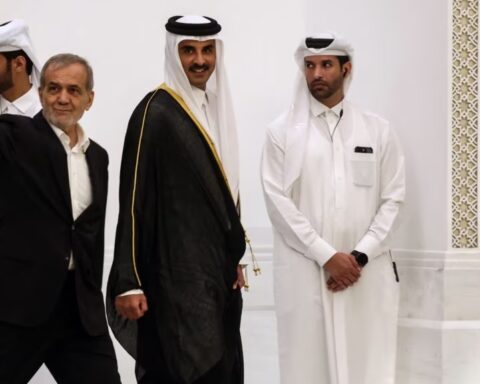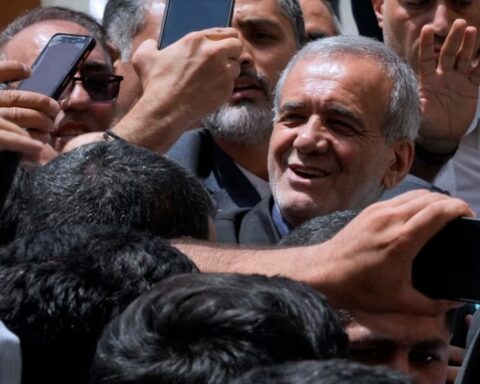Iranian climbing champion Elnaz Rekabi has arrived back in Tehran after sparking a controversy by “inadvertently” competing in the Asian Championships without a headscarf.
Thank you for reading this post, don't forget to subscribe!Rekabi and the rest of the Iranian team arrived in the capital on October 19, according to the official Tasnim news agency and several posts on social media.
With Iran in the throes of unrest over the death of a young woman last month while in police custody for allegedly wearing a hijab improperly, the 33-year-old Rekabi touched off a flurry of accusations and concern when she competed without covering her head at the competition in Seoul.
Tensions were heightened when media reports surfaced that she had her mobile phone and passport confiscated and could not be contacted.
Hours later, a post appeared on her Instagram page saying she competed without the hijab, which is mandatory for Iranian women to wear in public, “due to poor scheduling and an unexpected call for me to climb.”
“I inadvertently had a problem with my cover,” she said.
Her decision not to wear the headscarf in Seoul was seen by some observers as a move to show solidarity with ongoing anti-government protests.
It could not be verified whether Rekabi made the post freely and independent of pressure from Iranian officials and some government critics said the apology appeared in line with previous similar confessions by offenders who were pressured by the authorities to recant.
There were also unconfirmed reports that Rekabi’s brother had been detained by police.
The controversy comes after a month of unrest across Iran — one of the deepest challenges to the Islamic regime since the revolution in 1979 — sparked by the death of 22-year-old Mahsa Amini after she was taken into police custody for allegedly breaking hijab rules.
Since the start of the protests, several Iranian sports champions and prominent public figures, including soccer star Ali Daei, have been summoned or arrested by the authorities and had their passports confiscated after showing support for the protests.
The hijab — the head covering worn by Muslim women — became compulsory in public for Iranian women and girls over the age of 9 after the 1979 Islamic Revolution.









